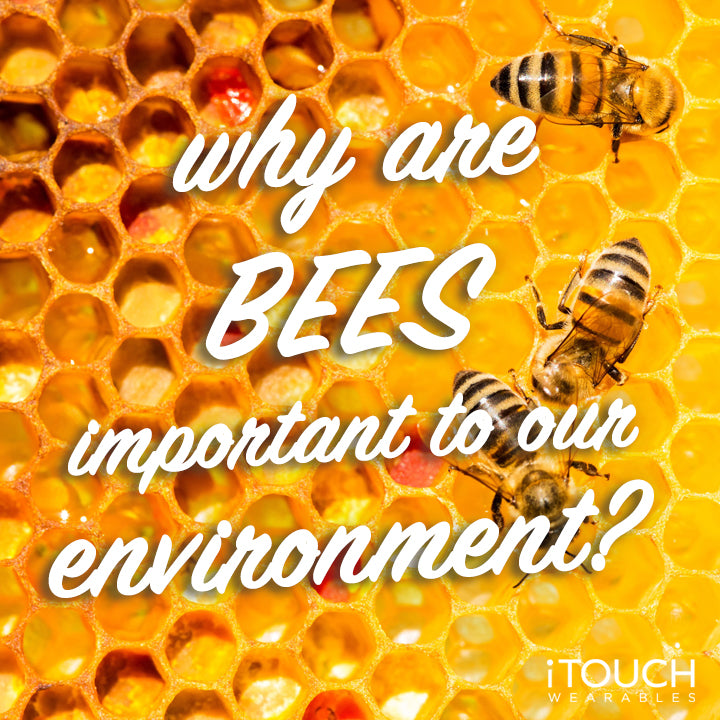
Why Are Bees Important To Our Environment?
On May 5, 2017, Blondie released their comeback album, "Pollinator," their first studio album since their under-appreciated release of 2014's album, "Ghost of Downloads." The name "Pollinator" struck major interest among fans and music editorialists a-like, wondering exact what the word meant to both Deborah Harry and Blondie as a whole. Embarking on the "Rage and Rapture Tour" with backing help from the band, Garbage, fans finally got the full understanding off what exactly the album title meant. Debbie Harry, being the legendary style icon that she is, emerged onto the stage elegantly costumed in fully Honey Bee regalia. Adorned on her back was caped, spelled out with the words, "Stop Messing Up The Planet!" It was her take on creating a stand on environmental health while raising awareness about the dwindling bee population. Since then, Debbie Harry and Blondie has paired and joined forces with Pollinator Partnership, Friends of the Earth, and GreenPeace for the BEE Connected Campaign, in an effort to conserve, educate, empower and encourage political movement to save our environment. By why exactly are bees and other pollinators important to our environment? This is how.
Pollinators Need You - You Need Pollinators

Bees, as well as other insects and small mammals that pollinate plants, are essential to our environment in that they provide one out of every three bits of our food. This means that they help sustain our ecosystems and environment by helping plants reproduce, which aids in creating our natural sources needed to live a healthy life. Bees and other pollinators carry around the genetic make-up of plants along with their pollen, going from plant to plant to generate reproductive interactions between each flowering plant. In doing so, they are key in creating:
- fruits, vegetables, and other produce we consume,
- one-half of the world's natural oils, fibers, and raw materials
while also aiding in:
- preventing soil erosion,
- and increasing carbon sequestration - the natural process of how carbon dioxide is removed from the air.
This process is extremely important in keeping our ecosystem in tact, and it is necessary to provide support and aid.
Why Are Pollinators Important?

Why are pollinators important? Well, over 75% of the world's plants need help with pollination (anywhere from 75% to 95% to be exact). Pollinators such as bees help to pollinate over 180,000 plant species as well as over 1000 crops found around the world. That means (as mentioned before), according to a study performed by Nabhan Buchmann, one out of every three bites we take are helped grown through the pollination practices of bees and other pollinators. Pollinators actually add about 217 billion dollars to the global economy according to a study found in Ecological Economics, and bees alone are responsible for about 1.2 and 5.4 billion dollars worth of the United States agricultural productivity.
What Is Causing The Colony Collapse?

The use of neonicotinoids, pesticides, insecticides, and herbicides have been the main cause of colony collapse, as well as the decrease of pollinators, in both the United States and the United Kingdom. Over the past twenty-five years, the population of pollinators has decreased by 50%. With this being said, in 2018, the US administration overturned a ban on neonicotinoids that Barack Obama had brought on during his presidency. There is growing evidence that supports that these pesticides have caused the decline of the bee population, finding that they can dramatically reduce the amount of eggs a honey bee queen may lay, while also affecting a bee's memory. These neurological issues have caused many bees to forget how to get back to their hives, leading to the decline as well. Now within the United States alone, every year, there is at least 1-3 major losses of colonies, with only about 2.7 million bees surviving compared to the 6 million that existed back in 1950.
It is hard to imagine what would happen to the world without bees, but we know that it would drastically affect our food supply. There are ways to help, however. There are numerous foundations that are doing research to increase the loss of bee colonies, while also aiding to promote climate change and healthier global agricultural practices. If you want to help as well, if you have an outdoor garden space, or even a little outdoor space on your apartment, you can grow pesticide-free, safe spaces for pollinators like bees.
Share with us why you think bees are important to our environment by tagging us on Instagram @itouchwearables and Facebook @itouchwearables. Also, be sure to check out our new articles published daily!
-Patrick


